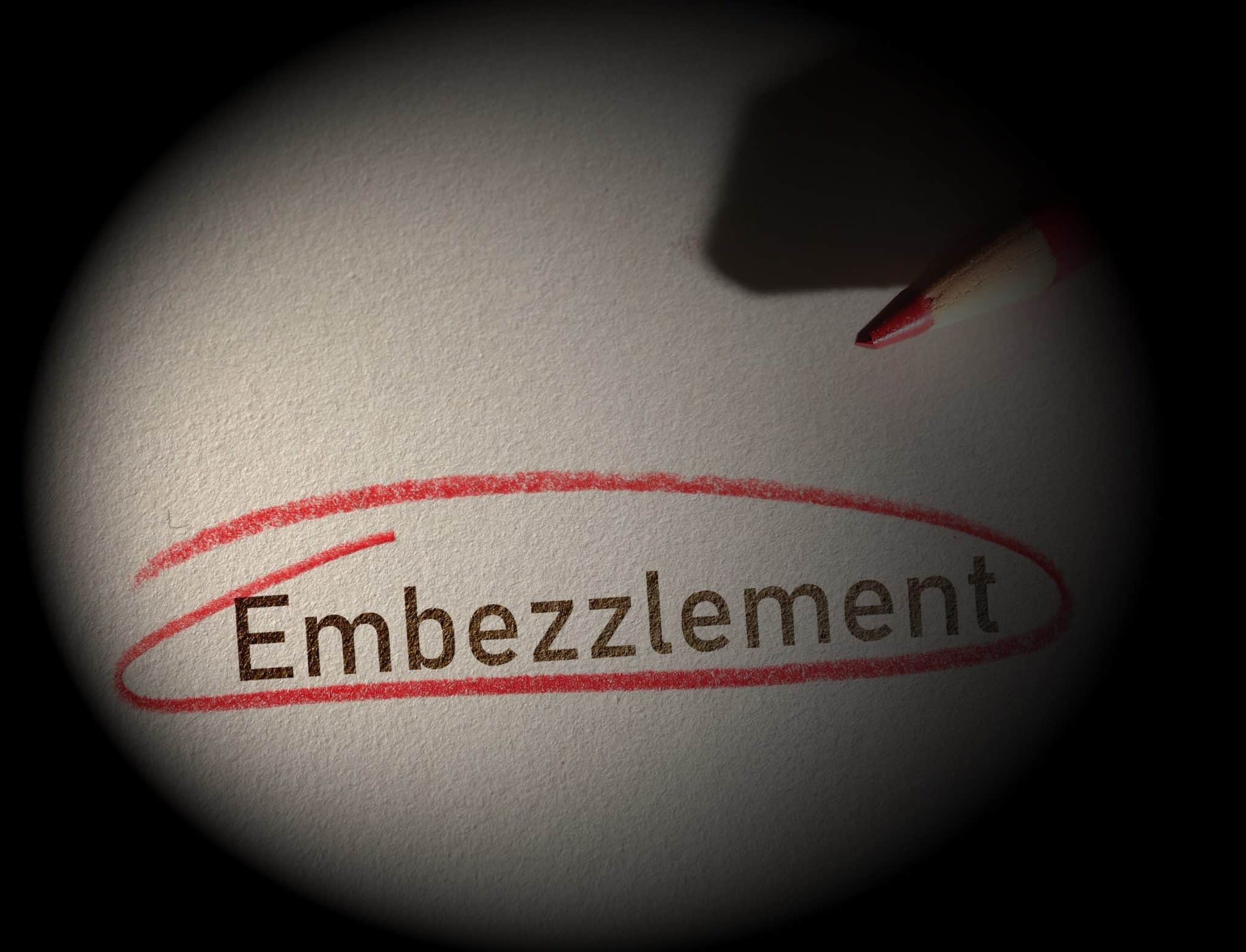 For those who may be facing embezzlement charges in Texas, you may have a lot of questions.
For those who may be facing embezzlement charges in Texas, you may have a lot of questions.
Primary among those questions are the types of penalties you may face if convicted, and the
best ways to defend against these charges.
As a white collar crime, embezzlement may not seem that serious. However, it’s a crime taken
very seriously in Texas, a position reflected by state law and the penalties associated with a
guilty verdict. Plus, you read about people being charged with embezzlement arather
frequently – and that should tell you what you need to know about how Texas prosecutors view
this crime.
If you face embezzlement charges, read on to learn more about this crime, how it’s penalized,
and the common defenses against it.
Embezzlement: What Is It?
In Texas, embezzlement is the appropriation of the property of another with the intent to
deprive them of it or defraud them. This is a broad definition. It can include everything from
employees taking cash from the register at their job to more complicated investment schemes
where employees skim money from clients’ accounts over a long period of time. But at its most
basic, embezzlement is a crime where someone in charge of handling goods or assets takes
those things for their own gain.
Some acts that have been charged as embezzlement in Texas include:
● Taking cash from an employer
● Transferring money from the employer to a personal account
● Stealing goods or services from an employer
● Changing or fixing accounting books to hide the employer’s real income so you can take
it for yourself
What Does the Law in Texas Say About Embezzlement?
In Texas, there’s no specific statute that addresses embezzlement. Under the law,
embezzlement is considered an act of theft. You can be charged with embezzlement by
prosecutors as either a misdemeanor crime or a felony. The level of crime you get charged with
depends on the value of the property taken. Here is the breakdown:
Class C Misdemeanor
When the goods or cash taken have a value of less than $100. The penalty if convicted of this is
a fine of $500.

Class B Misdemeanor
When the goods or cash stolen is valued between $100 and $750. However, if you have a
previous theft conviction, you can be charged with this level of crime for goods or cash valued
at less than $100. Conviction includes up to six months in jail and fines of as much as $2,000.
Class A Misdemeanor
This is charged for stolen goods and cash valued between $750 and $2,500. Conviction carries a
jail sentence of up to 12 months and fines up to $4,000.
State Jail Felony
This is charged for goods or cash valued between $2,500 and $30,000. You can be sent to a
Texas state jail for up to two years and be fined up to $10,000.
Third Degree Felony
The cash or goods is valued at between $30.000 and $150,000. You may serve up to 10 years in
prison and pay fines of $10,000 if convicted.
Second Degree Felony
Charged when stolen goods or cash is valued between $150,000 and $300,000. Carries a prison
sentence of as much as 20 years well as the requirement to pay fines up to $10,000.
First Degree Felony
Charged for goods or cash valued at more than $300,000. This has the harshest prison sentence
connected with it – up to 99 years – as well as up to $10,000 in fines.
How to Defend Against Texas Embezzlement Charges
In order to be charged with embezzlement, there are a few conditions that must be met.
● The defendant must have a fiduciary relationship with the owners of the asset or
property.
● They must gain or acquire possession of the property in question through that
relationship.
● They must intend to deprive the owner of the property permanently.
● They must act with intent.
For a defense against embezzlement to be successful, one of the above elements has to be
disproven. This is frequently done in a few ways, though the particular circumstances
surrounding your case will inform which is the best defense to use:
Duress
If you seriously believed someone was in danger of harm if you didn’t act to commit a crime, that’s a solid defense.
Entrapment

This can be a workable defense if you were compelled by the government to commit the crime.
Lack of Intent
If you didn’t intend to take the property or money, that’s a good defense too.